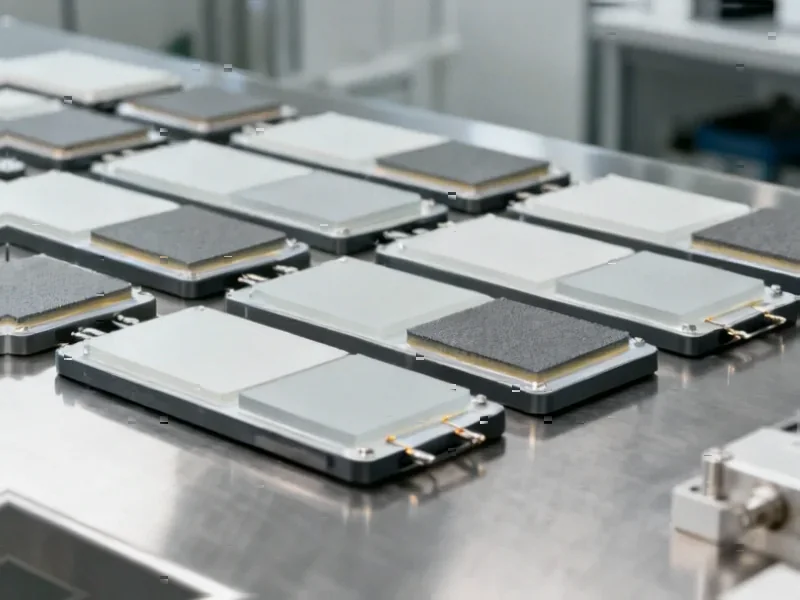According to Phys.org, researchers from the Max Planck Institute for Terrestrial Microbiology have developed an automated micro-algal platform that enables large-scale testing of chloroplast genetic modifications for the first time. The team, led by René Inckemann in Tobias Erb’s group, successfully characterized more than 140 gene-regulatory DNA parts in the micro-alga Chlamydomonas reinhardtii, covering a wide range of expression strengths essential for fine-tuning genetic circuits. As proof of concept, they engineered a synthetic metabolic pathway that created a “turbo-alga” capable of nearly doubling biomass production under stress conditions by improving CO₂ uptake efficiency. The study, published in Nature Plants, establishes a workflow that can generate and test thousands of transplastomic algal lines in parallel, significantly accelerating the development pipeline from concept to field trials. This breakthrough represents a major step forward in making chloroplast biotechnology scalable and accessible.
Disrupting the Agricultural Biotechnology Timeline
The agricultural biotech sector has long struggled with the slow pace of crop development, where bringing a new trait to market typically requires 10-15 years and hundreds of millions in R&D investment. This automated chloroplast platform represents a fundamental shift in that paradigm. By enabling researchers to test thousands of genetic combinations in micro-algae before moving to complex crop plants, the technology could potentially cut years from development timelines. For companies like Bayer, Corteva, and Syngenta, this means faster iteration cycles and reduced R&D costs at the early discovery phase. More importantly, it allows for testing genetic combinations that were previously too complex or time-consuming to evaluate systematically.
Accelerating the Climate Adaptation Race
With climate change accelerating faster than many crop development cycles, this technology arrives at a critical moment. The ability to rapidly engineer chloroplasts for improved heat tolerance, drought resistance, and carbon fixation efficiency could become a decisive competitive advantage in the race to develop climate-resilient crops. The researchers’ demonstration of doubled biomass production under stress conditions suggests we’re looking at potentially transformative yield improvements for staple crops facing increasingly challenging growing conditions. This positions chloroplast engineering as a complementary approach to traditional nuclear genome editing, offering distinct advantages like precise gene insertion and reduced risk of transgene escape into the environment.
Shifting Investment Patterns in AgTech
This breakthrough is likely to redirect venture capital and corporate R&D toward chloroplast-focused technologies. While synthetic biology investments have surged in recent years, chloroplast engineering has remained a niche area due to technical limitations. The standardization and scalability demonstrated in this research remove significant barriers to entry, potentially creating a new wave of startups focused on chloroplast-based crop improvements. Established agribusinesses may accelerate their acquisition strategies for companies with chloroplast expertise, while agricultural biotechnology programs at research institutions will likely see increased funding for organelle engineering initiatives.
The Regulatory Advantage of Chloroplast Engineering
Beyond the technical benefits, chloroplast engineering offers potential regulatory advantages that could speed market adoption. Because chloroplast DNA isn’t typically transmitted through pollen in many crop species, there’s reduced concern about gene flow to wild relatives—a significant regulatory hurdle for genetically modified crops. This characteristic, combined with the precise insertion capabilities demonstrated in the research, could streamline the approval process for new crop varieties in markets with strict GMO regulations. For farmers and consumers, this might mean faster access to improved varieties with tangible benefits like reduced water requirements or improved nutritional profiles.
The Path From Laboratory to Field
While the platform represents a major advance, significant challenges remain in translating micro-algae successes to field crops. The chloroplast biology of Chlamydomonas differs from that of major crop plants, and scaling from laboratory conditions to agricultural production introduces additional complexities. However, the researchers’ establishment of a standardized DNA library compatible with common biotechnological standards provides a crucial foundation for cross-species application. The real test will come as the technology moves through the Robust Chloroplast research consortium and into more complex plant models, where factors like whole-plant physiology and field performance become critical considerations.




